Meet Juliet Lyon, Director of ParCo (Parceiros Comunitários or Community Partners), an organization she started in Vilankulo.
Tell us a bit about yourself? Your life story, how did you end up where you are now?
I first came to Mozambique as a Peace Corps volunteer in 2004 with the good fortune of being placed in Vilankulo. I had an intense job at CARE, usually taking on management responsibilities with HIV projects. It was heady work for a 25-year-old recently out of college (called varsity around here?). During those two years with CARE, I was disillusioned with some of what I learned about international development. How projects are preplanned in offices far away and they can just scratch the surface of the problems on the ground even while spending big bucks. That stuck with me over the next decade plus (sigh) while I continued to manage international development projects in all different sectors (water, food secourity, education and so on).
At the end of 2017, I quit my job as Mozambique Country Director for an international NGO to try something different. I used my last savings to buy a run-around car and tasked myself with figuring out how to start a localized Community-Led Development organization.
I live next to the beach in Vilankulo just a few doors down from the house that I lived in as a volunteer fifteen years ago. Along the way, I met my husband Scott (at Afrobar!). He’s a Zimbabwean farmer turned construction magnate and we have two kids, Hope and Reed. I am extremely lucky that I could take the leap to pursue my passion while my husband covers the household bills. I never take that for granted.
What is your favourite part of working and living in Vilankulo?
No day is the same. You always see things that make you think or laugh out loud. The Matswa people are so forgiving. They don’t hold grudges and they genuinely want to connect even if you are just strangers involved a simple sale of goods. I love that my kids get to grow up with Matswa nannies.
Professionally, the best part is always feeling like I am adding value one way or another. It’s not like in The States where I might have competed with 20 other people for the same job at a non-profit only to doubt whether I was doing it any better or differently than someone else would. Everything I do here feels like an adventure in which we are finding the path together. That’s both exciting and gratifying.
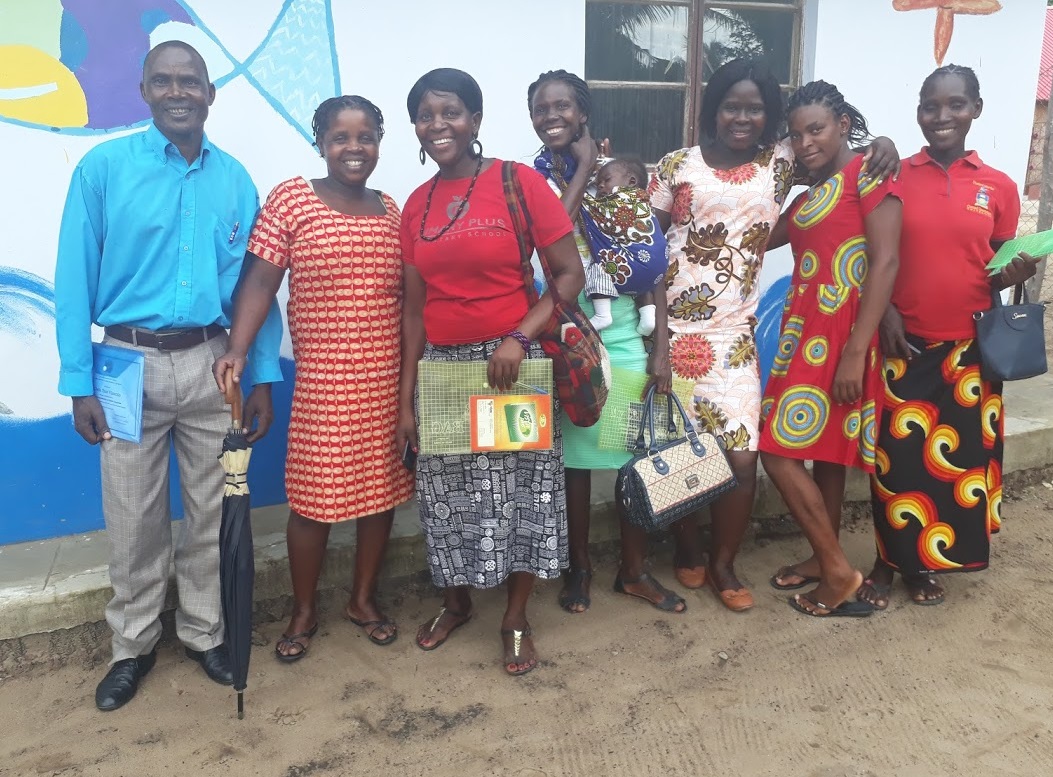
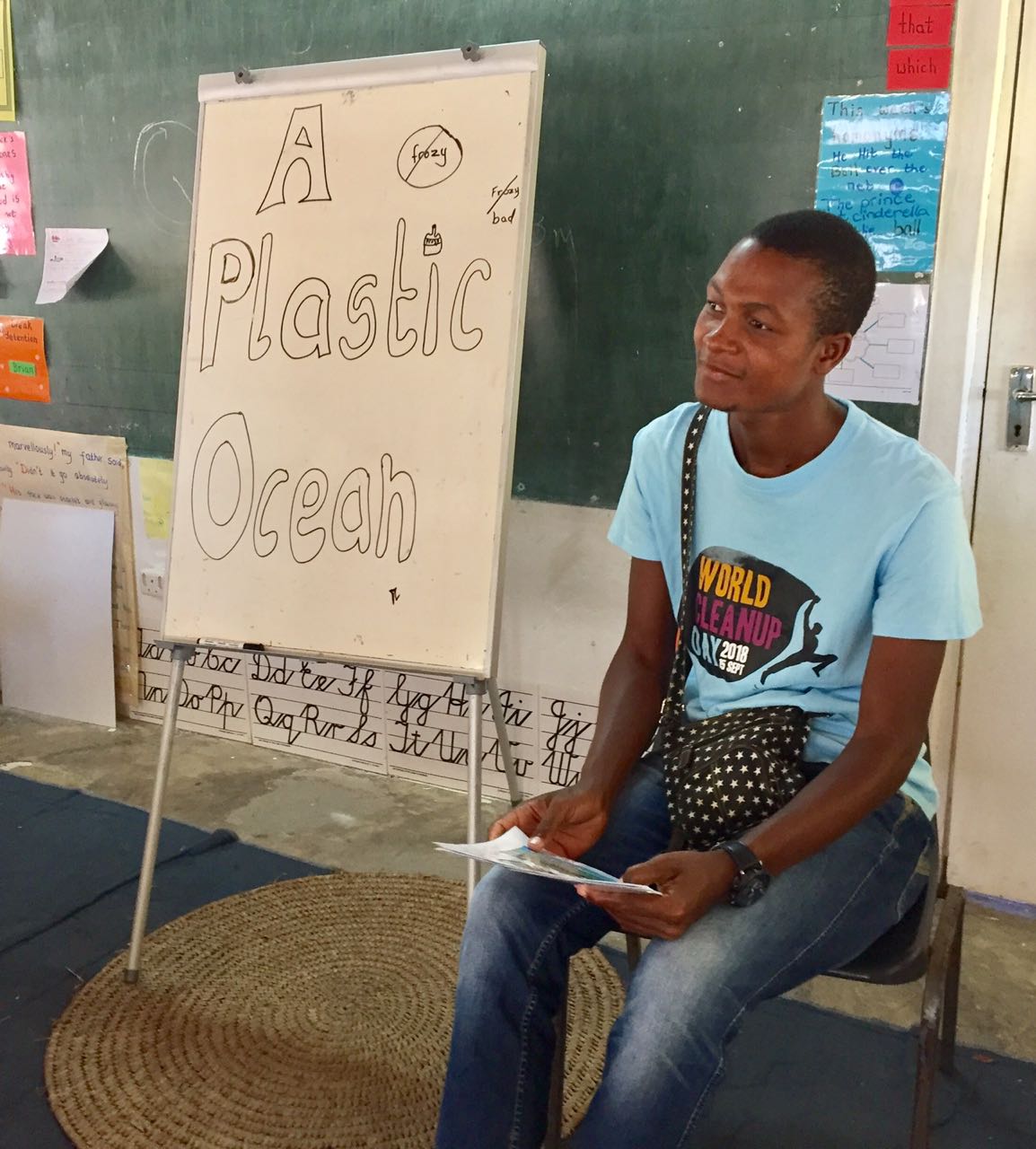
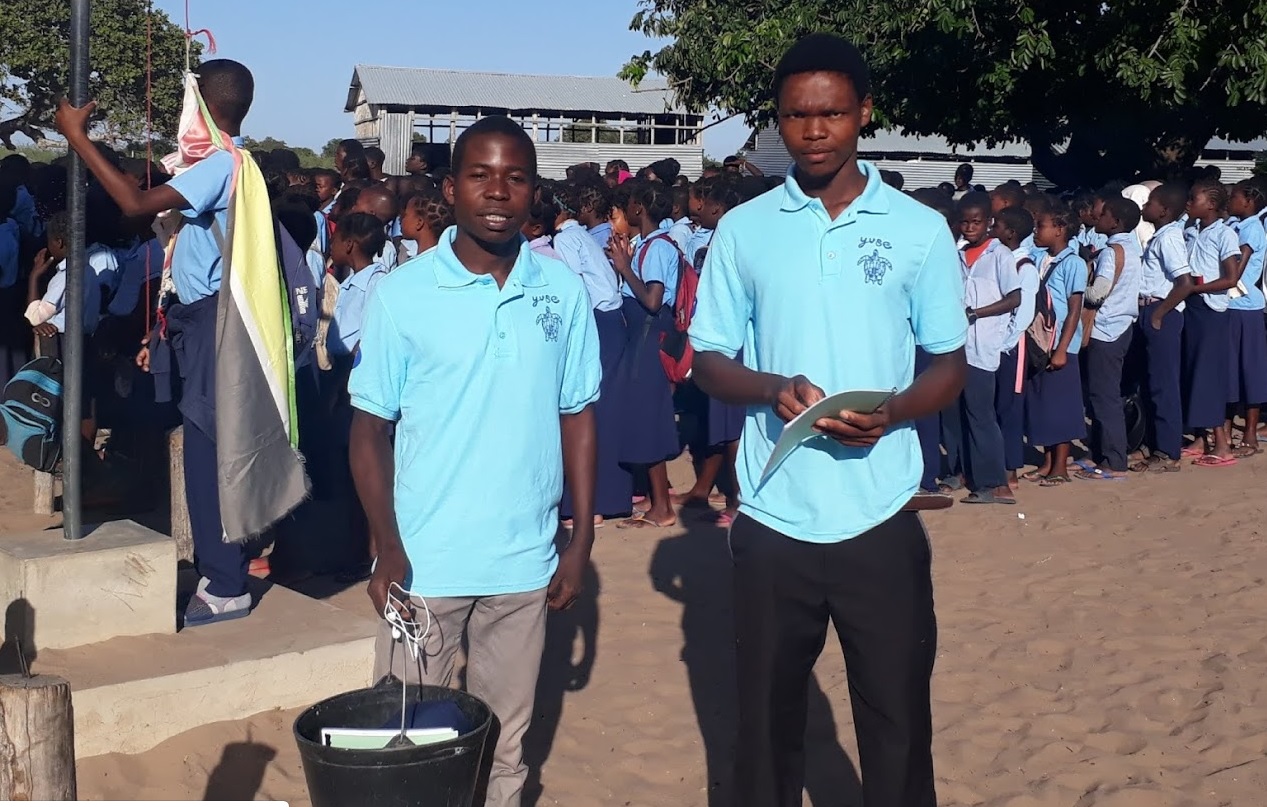
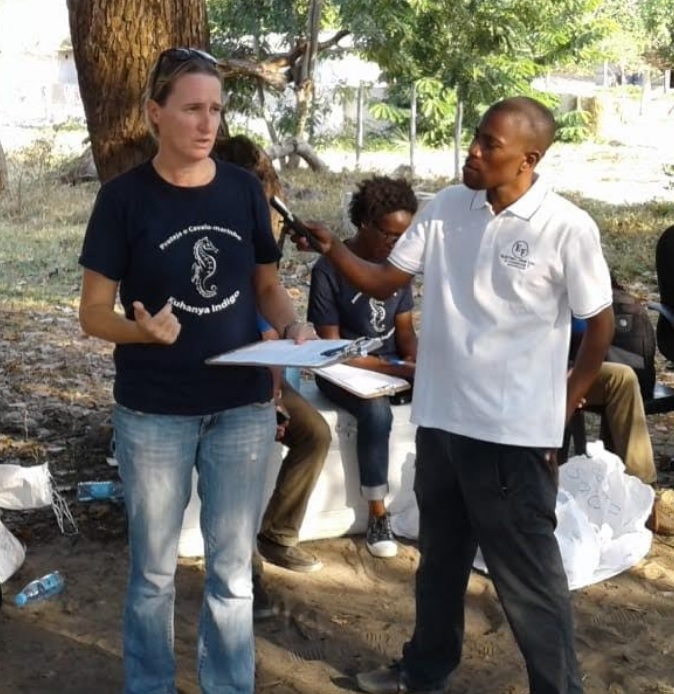
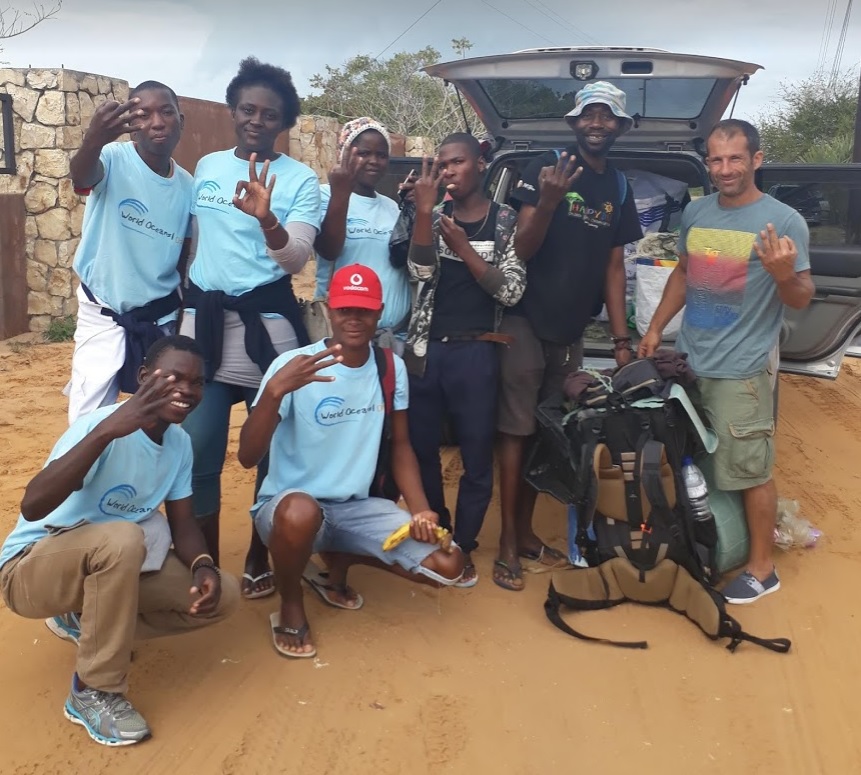
What does a typical day in your life look like?
When I took the leap to focus on my own organization, things were slow at first while I considered how to start. I ran on the beach every day and picked up flipflops thinking I would upcycle them into bracelets as a fundraiser. Then there was some buzz about too many Frozy bottles washing up on the beaches. So my friend and I called a meeting on May 5th. Over twenty people showed up, mostly expats from tourism businesses. There was a lot of energy in the room and we kept it up going with events targeting diverse interest groups over the next few months including beach and town cleanups on World Oceans Day and World Cleanup Day. The lodges became the sponsors and the movement drew in some great young people with passion and practical ideas that are still volunteering as beach clean activists and environmental educators. So really, ParCo got involved in conservation issues by stumbling into the ocean plastic wave that consumed the whole world in 2018. I eventually gave my flip flop collection to Xico Gaivota, the artist-activist that visited from Portugal to do an exhibition at Bahia Mar. He used some of them in a turtle sculpture that hangs out on the lawn there.
These days, I drop the kids at preschool and then come back to my home office (a surprisingly comfortable setup considering it’s inside a converted shipping container) and tackle my “frogs.” Mark Twain said if your job is to eat a frog, you should eat it first thing. I follow a tight calendar of key tasks to do in a week – two or three a day – so I don’t lose ground. These will be things like proposals, reports, training material, and partner agreements. I have been surprised at how quickly things move in grassroots work when you don’t have to run decisions by a headquarters office and you can form partnerships spontaneously. But it also means I have to stay on the ball because I have only myself to blame if ParCo gets behind where it could be.
After I get office work out of the way, I have meetings or field visits. I often drive out to Mangalisse in Chibuene where we help a community preschool and a seahorse protection project. I listen to podcasts during the drive. Of course, the meetings are my favourite part of the day because I have those “grassroots” experiences that I longed for when I was in “top-down” development. Like taking a back seat in a debate about where to house the reception centre for seahorse safaris (literally sitting on the ground and giving away my camping stool to the meeting chair).
My workday officially ends at 3pm when I pick up the kids but I keep muddling through less intense tasks like doing my daily Instagram post. It’s usually a picture from my field visit that day or one an activist has forwarded me from their work. I was told as an organization, you really need to post every day. At first, that was hard, but I am settling into it.
Anything interesting you would like to share?
It might be surprising to hear that demand for the seahorse protection campaign really did come from the community. I picked up a hitchhiker driving back from the preschool. This young guy, Horacio told me he was headed into town to complain that the government had apprehended a community member for selling seahorses but they hadn’t first told the community about protection laws or the importance of the seahorses. Before that car ride, I wasn’t even aware that there WERE seahorses around Vilankulo! But after that day, I started looking into it. It turns out seahorses were being caught en masse, like 6,000 per month, for the Chinese medicine trade. I saw Horacio a few months later in the middle of the seahorse protection campaign I helped stimulate and a fisheries official told me that it was actually Horacio himself who was caught selling seahorses and he was still awaiting trial. The very lucrative seahorse trade was basically crushed by the campaign, indirectly because of him. But this young guy is still smiley and friendly and doesn’t seem to regret anything. It’s just funny how things work here.
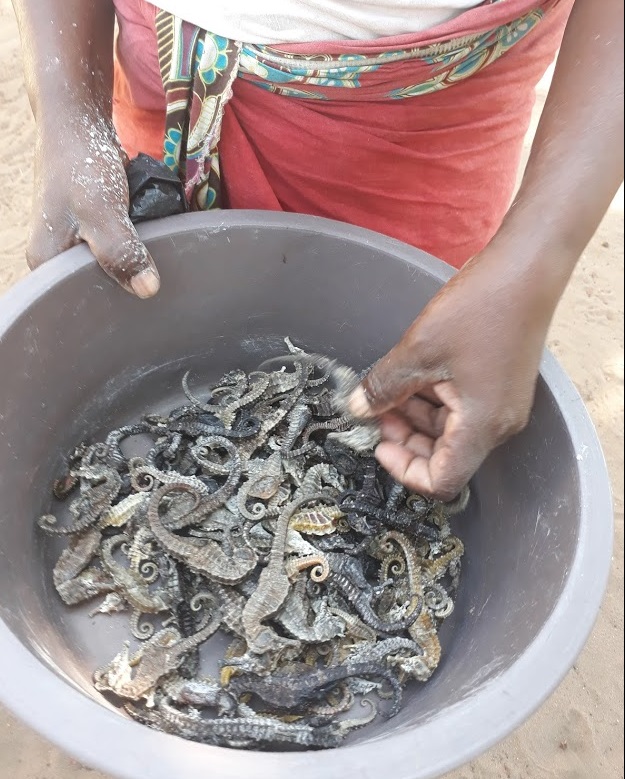
Seahorses fate before the campaign 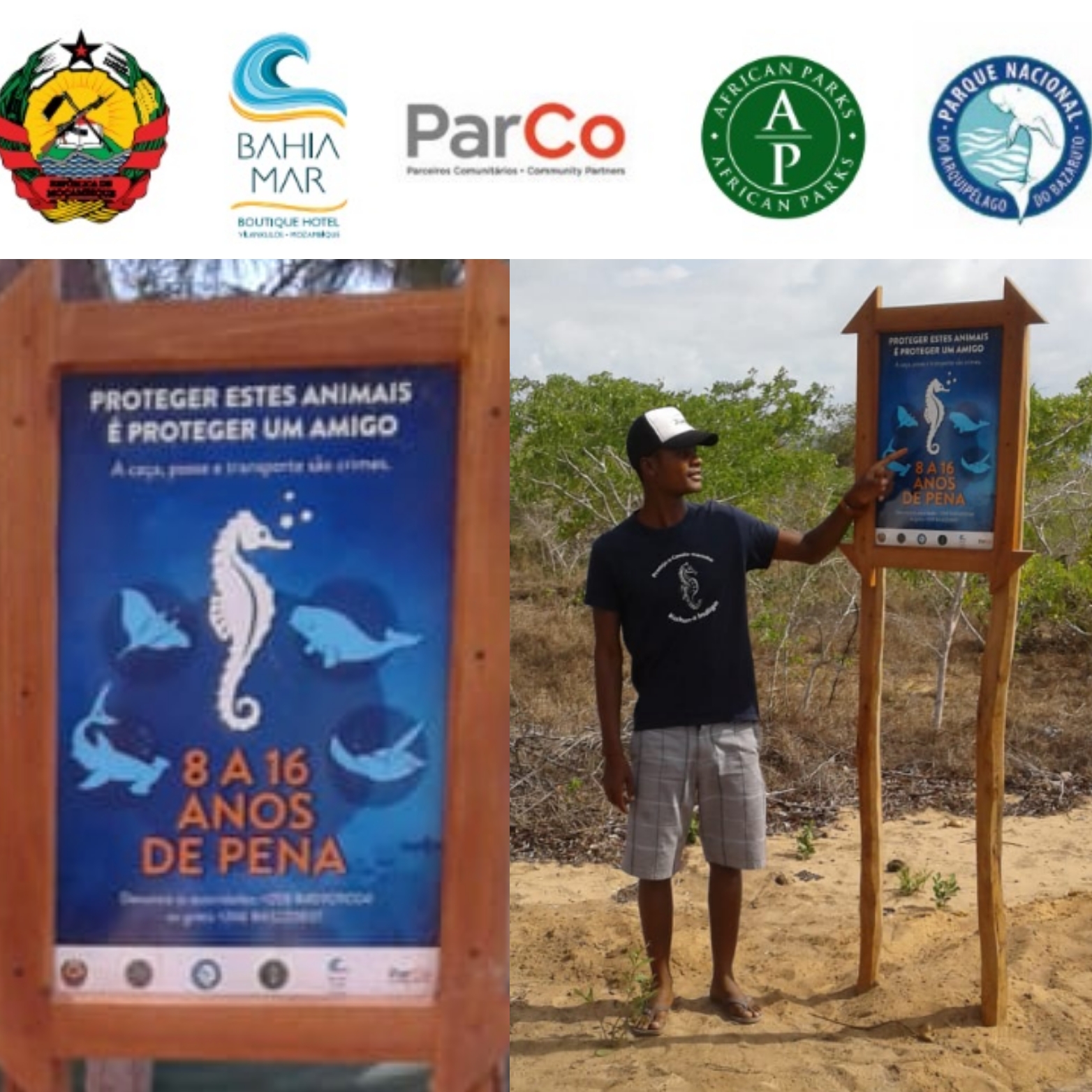
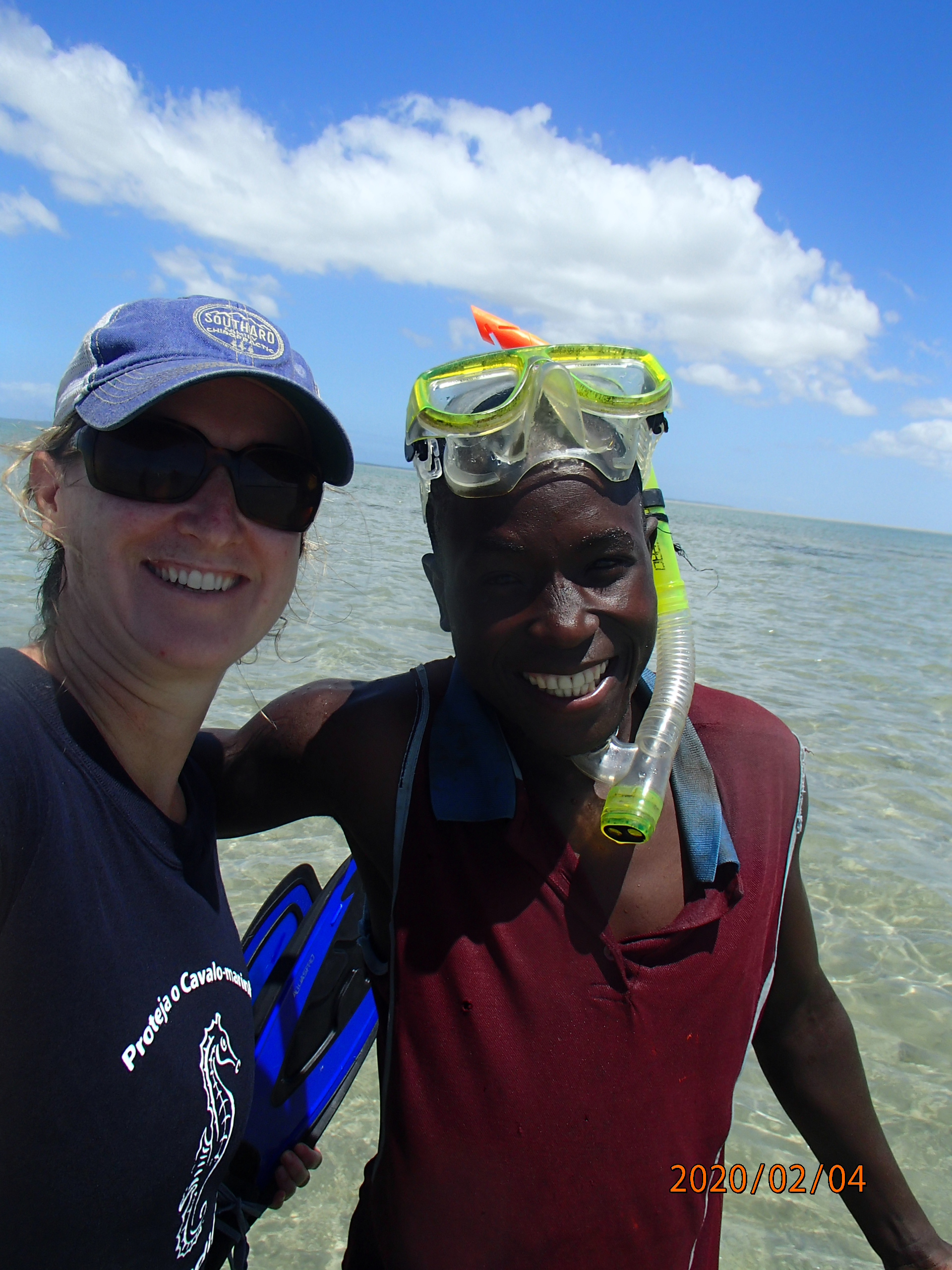
The day Horacio led his first sea-horse safari.
Any additional/closing thoughts?
We are also looking at pangolin protection in the inland areas. A district administration has already committed to working with us and some farmers are planning a braai to discuss strategies.
Another thing. Sometimes I get asked funny questions about working with Mozambicans like “Are you sure they really get it?” The simple answer is, it is not my goal for people to “get” something they have no interest in. I learned during my training in Chicago as a community organizer to take people “where they are at” and move with them step by step based on their own interests. That’s how I try to work.
But these types of questions often carry a hidden message: that I haven’t been around long enough to really know “them.” As though one day I am going to wake up and everyone I thought was a collaborator will have turned into an ugly monster. I get it. We all have personal histories that explain our thoughts and views. But it’s so important to be critical of our own thoughts and to challenge our negative biases. I am often surprised by people being much more impressive than I first thought. Like a young looking female Tecnico at the fisheries office who it turns out studied in Norway, drove Naval ships in Brazil and has a grown son who towers over her. Who knew?! I am sure everyone can relate to this. Of course, people also disappoint us, but that doesn’t mean that giving people the benefit of the doubt, or giving them more credit than we are naturally inclined to, is a sign of weakness or naivety. Conversely, it shows courage and civility to take seriously those who are not like us. And it’s in that vulnerable space that we let people bring out the best in us as we reveal the best in them. That’s my (no longer so) hidden message in a nutshell. And if I am following my own advice, it means if someone asks me a question that triggers my negative biases about people who ask those questions, I will give them the benefit of the doubt, show compassion and get to know them. So I welcome everyone to challenge me!
One last thing, the seahorse poaching is apparently on an upward trend again as it’s been a while since the big-time traffickers from Maputo were jailed (in October during the campaign) and the fishermen are getting restless. So please tell all your friends to come to Vilankulo and fill up the seahorse safaris to show the community they can make money from protection, not just poaching! They are the most adorable little creatures and we always see lots of them.
Website: www.parcomz.com
Facebook: /parcomz
Instagram: parcomoz
email: juliet@parcomz.com
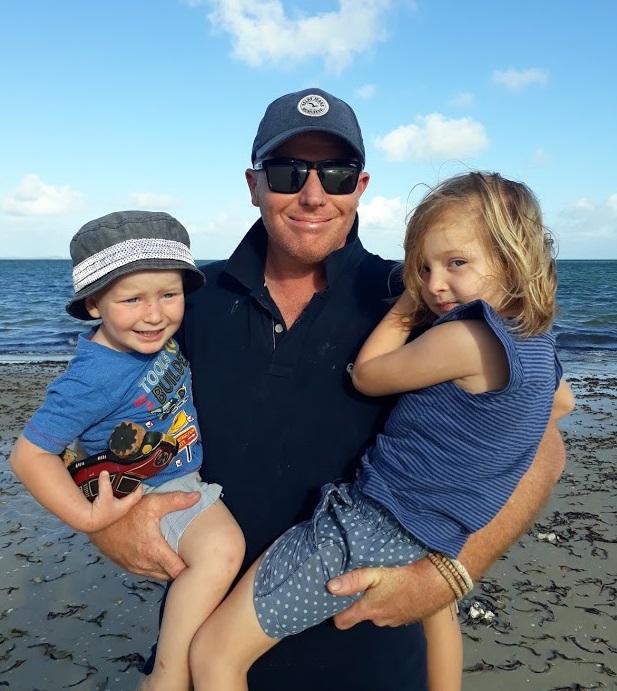
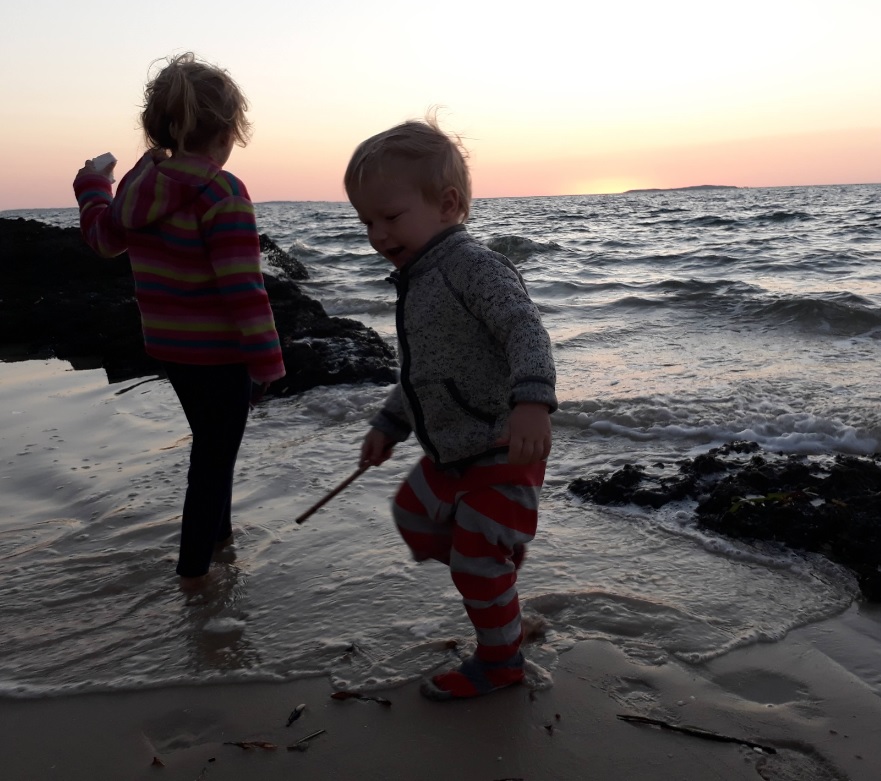
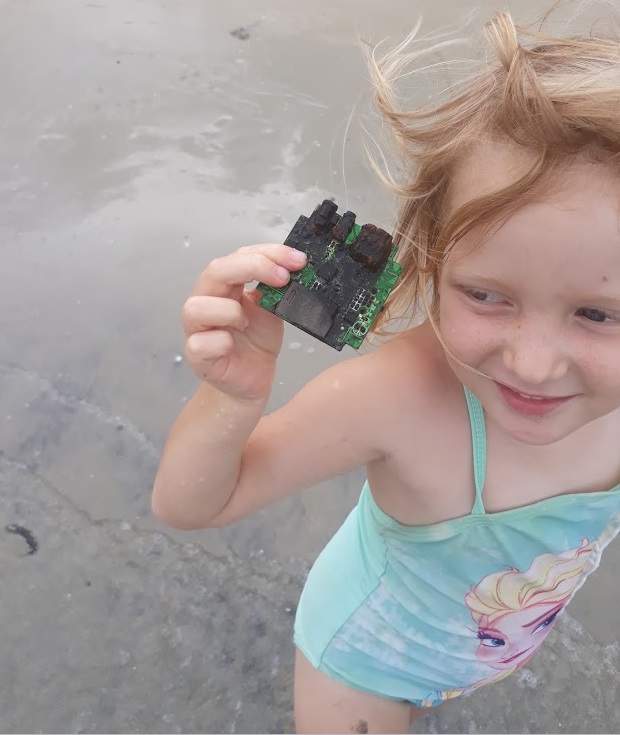

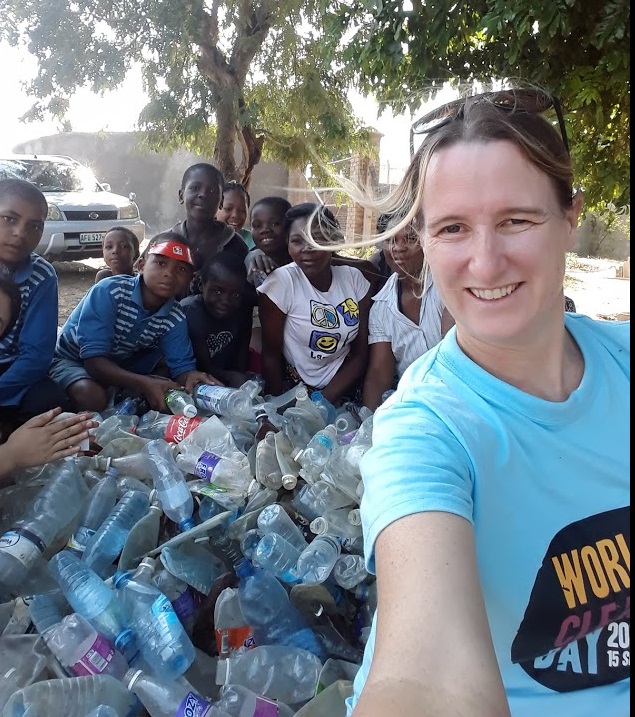
This lady is doing fantastic work. Thank you to everyone involved in trying to make the world a better place!
LikeLiked by 1 person
So inspiring!
LikeLiked by 1 person
Another very interesting introduction, thank you.
LikeLiked by 1 person
Very Inspiring!!
LikeLiked by 1 person
Well done Juliet. Your South African family are very proud of you and the work you are doing.
LikeLiked by 1 person